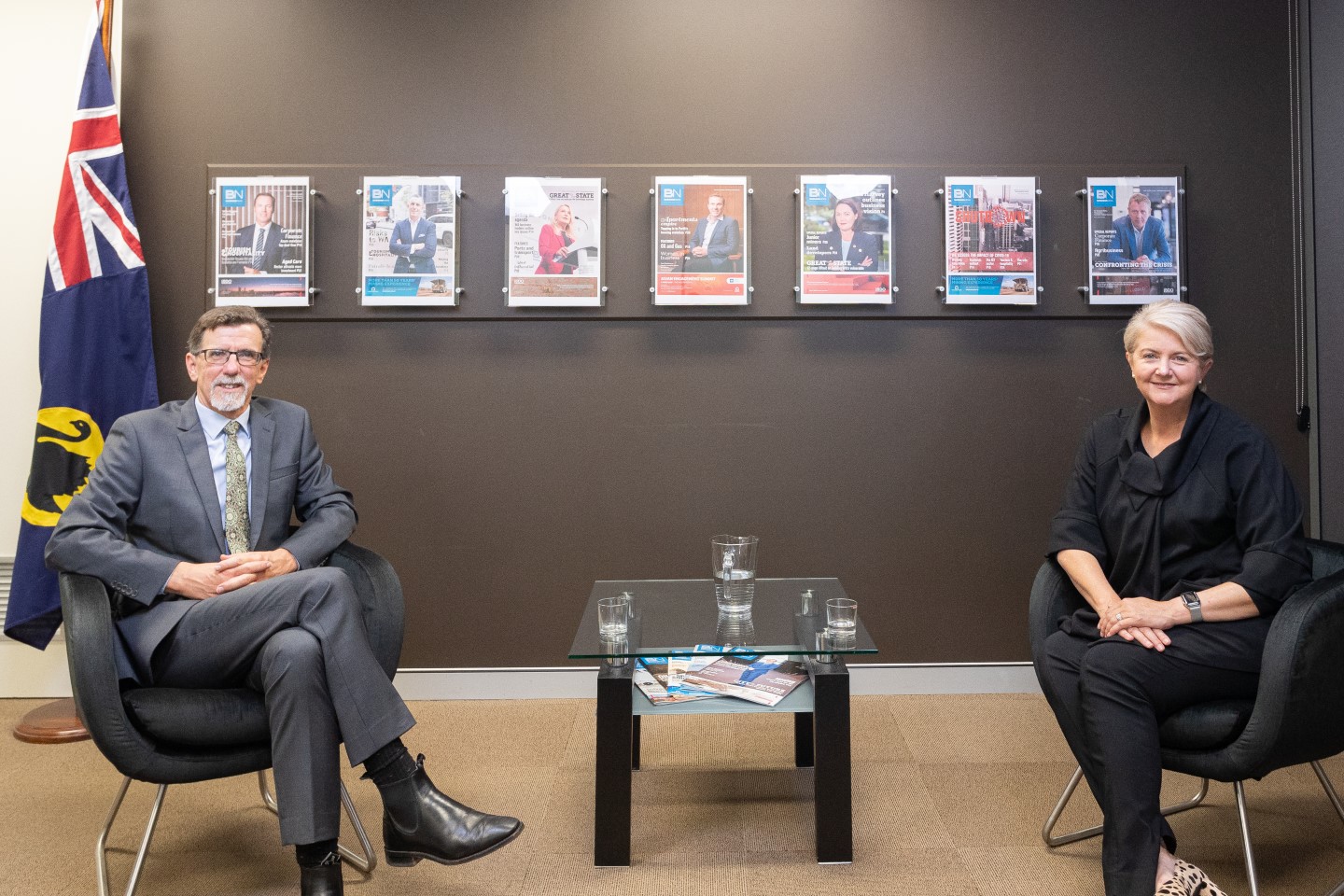In the midst of crucial contract negotiations with the state government, St John Ambulance WA chief executive Michelle Fyfe spoke to Business News about the group’s diversification strategy, lessons learned from COVID-19, and her career.


In the midst of crucial contract negotiations with the state government, St John Ambulance WA chief executive Michelle Fyfe spoke to Business News about the group’s diversification strategy, lessons learned from COVID-19, and her career.
The contract negotiations are central to St John’s future, as they underpin its core ambulance operations.
Ms Fyfe believes the group’s status as a not-for-profit charity with strong community engagement, including 9,000 volunteers, makes it uniquely placed to deliver ambulance services across Western Australia.
“We have a geography that makes it very difficult to deliver ambulance services and we do it in a very effective way,” she said.
“We are funded to deliver the service in the metropolitan area and about 15 locations across the state.
“Where we are not funded, we deliver it anyway with volunteers.
“I don’t know you can replicate that in any other way.”
Ms Fyfe said independent surveys highlighted St John’s effectiveness.
“On any given year over the past decade, WA has been the most cost-effective ambulance service in the country,” she said.
The Order of St John, which dates back to the Crusades, has been active in Australia for more than 130 years.
It pioneered volunteer-run ambulance services across the country, but in most states the service has been taken over by government.
The exceptions are WA and the Northern Territory.
Ms Fyfe said there was a lot of back and forth in the contract negotiations, which had been complicated by the COVID-19 pandemic, but she remained confident of reaching agreement with the government.
“It’s a great partnership, but like all partnerships there are tensions every now and again,” she said.
“What I think we will do very shortly is come to an agreed ground.”
St John hopes the outcome is more than a two-year rollover of the current contract, which expires on June 30.
Ms Fyfe emphasised the increasing diversity of St John’s operations.
“There is a lot more to the St John brand than just the ambulance,” she said.
The group also offers first aid training, event health services, and has moved into GP clinics, dental clinics, and urgent care clinics.
The 2016 purchase of Apollo Health was a major step for the group.
“That was a very strategic move by our organisation to look at how we diversify,” Ms Fyfe told Business News.
With annual revenue of $315 million and 1,800 staff, St John is a large business, but Ms Fyfe said she always focused on its purpose.
“We need to be business savvy and generate profits so we can reinvest, but ultimately, whenever I make a decision as chief executive, I ask how it aligns with our purpose,” she said.
“Our motto is ‘in service of humanity’ and that’s what we have to think about every time we make a business decision.
“The for-purpose piece always has to win.”
Ms Fyfe said St John also focused on sustainable, enduring initiatives that build on its status as one of the most trusted not-for-profits.
“That’s incredibly important for us; that trust has been built up over a long period of time, and we don’t want to make decision that diminish that.”
Career break
Ms Fyfe, who joined St John two years ago, said she had anticipated being a police officer for her entire career.
She experienced a lot of innovation, training and leadership development at WA Police, and also worked closely with St John over the years.
“This opportunity came up and I thought I’d be crazy not to give it a go,” Ms Fyfe said.
“The easiest thing would have been to stay in my comfort zone at the WA Police.
“I was there for three and a half decades, a long time.
“It has been exhilarating, nerve-racking, fabulous, the best job I’ve ever had.”
She said people considering a career change needed to be open to opportunities.
Ms Fyfe also explained big changes St John had made to deal with COVID-19, including the closure of its State Operations Centre, extra training, and transitioning certain medical services to telehealth.
“More than anything, we changed the way we communicated with our people,” she said.
This included the rapid rollout of new tools such as Microsoft Teams and Yammer.
“We had an 18-month program [and] we rolled that out in two weeks … it has been an outstanding success,” Ms Fyfe said.
“[What] we learned from that [was] if you really need to you can get things done and get them done quickly.”














